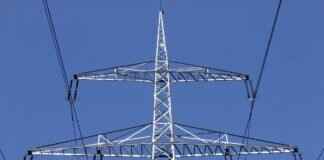This article explores the best part-time remote job opportunities available in the US, providing insights on how to find, apply for, and succeed in these roles. As the job market evolves, the demand for flexible work arrangements has surged, making part-time remote jobs an attractive option for many. Whether you are a student, a parent, or someone looking to supplement their income, understanding the landscape of remote work can empower you to make informed decisions.
Understanding Part-Time Remote Jobs
Part-time remote jobs are positions that allow individuals to work from home for fewer hours than a full-time job. These roles typically offer flexibility and a better work-life balance, making them appealing to a wide range of job seekers. The advantages of part-time remote work include the ability to create your own schedule, reduced commuting time, and the opportunity to pursue other interests or responsibilities alongside work. Understanding the nature of these roles is crucial for anyone looking to enter the remote job market.
Top Industries for Part-Time Remote Work
Several industries are particularly well-suited for part-time remote work. These include:
- Technology: Software development, web design, and IT support are in high demand.
- Customer Service: Many companies offer remote customer service positions that are flexible and part-time.
- Education: Online tutoring and teaching roles are increasingly popular, especially with the rise of e-learning.
By targeting these industries, job seekers can increase their chances of finding rewarding part-time remote work.
Skills Needed for Part-Time Remote Jobs
To thrive in part-time remote roles, certain skills are essential. Employers often seek candidates with strong communication skills, as remote work relies heavily on virtual interactions. Additionally, technical skills, such as proficiency in specific software or tools, can set candidates apart. Time management and self-discipline are also critical, as remote work requires individuals to stay organized and motivated without direct supervision.
Where to Find Part-Time Remote Job Listings
Finding the right job listings is crucial for securing part-time remote work. Some of the best platforms for job hunting include:
- Job Boards: Websites like Indeed, Glassdoor, and SimplyHired often feature remote job listings.
- Remote-Specific Sites: Platforms such as We Work Remotely and Remote.co specialize in remote job opportunities.
- Social Media: LinkedIn and Facebook groups can also be valuable resources for finding job openings.
Crafting an Effective Remote Job Resume
A well-crafted resume is essential for standing out in the competitive remote job market. Focus on highlighting your relevant experience and skills, particularly those that demonstrate your ability to work independently. Tailoring your resume to each job application can significantly improve your chances of landing an interview. Include keywords from the job description to align your qualifications with what employers are seeking.
Preparing for Remote Job Interviews
The interview process for remote jobs can differ from traditional roles. Candidates should prepare for virtual interviews by ensuring they have a reliable internet connection and a quiet space to talk. Familiarize yourself with common remote interview questions, and practice articulating your experience in a way that showcases your ability to work independently and your adaptability to virtual environments.
Balancing Multiple Part-Time Remote Jobs
Many individuals successfully juggle multiple part-time remote jobs. To manage your time effectively, consider using tools like calendars and task management apps. Set clear boundaries to separate work from personal time, and prioritize tasks based on deadlines and importance. By staying organized, you can maintain productivity across different roles.
Common Challenges of Part-Time Remote Work
While part-time remote work offers many benefits, it also presents challenges. Common obstacles include feelings of isolation, difficulty in separating work from home life, and potential distractions. To overcome these challenges, establish a dedicated workspace, maintain regular communication with colleagues, and set specific work hours to create a structured routine.
Legal Considerations for Remote Workers
Understanding your rights as a remote worker is essential. Familiarize yourself with the legal aspects of part-time remote employment, including contracts, tax implications, and labor laws. Ensure that you are aware of your rights regarding pay, benefits, and working conditions to protect yourself in the remote work environment.
Networking in the Remote Work Environment
Building connections is vital for career growth, even in a remote setting. Utilize platforms like LinkedIn to network with professionals in your field. Attend virtual events, webinars, and online workshops to expand your professional circle and learn from others in the industry.
The Future of Part-Time Remote Jobs
The landscape of remote work is continually evolving, with more companies embracing flexible work arrangements. As technology advances, we can expect to see an increase in part-time remote job opportunities across various sectors. Staying informed about trends and adapting to changes in the job market will be crucial for those seeking to thrive in this dynamic environment.

Understanding Part-Time Remote Jobs
Part-time remote jobs are becoming increasingly popular as they offer a unique blend of flexibility and work-life balance. These positions typically require fewer hours than full-time roles, allowing employees to manage their personal lives alongside their professional commitments. But what exactly constitutes a part-time remote job, and why should job seekers consider them in today’s dynamic economy?
Definition of Part-Time Remote Jobs
A part-time remote job is defined as a position that allows employees to work from home or any location outside of a traditional office, requiring fewer than 35 hours of work per week. These jobs can vary significantly in terms of responsibilities and industries. Some common examples include roles in customer service, data entry, content writing, and virtual assistance.
Advantages for Job Seekers
The advantages of part-time remote jobs are numerous, especially in the context of today’s economy. Here are a few key benefits:
- Flexibility: One of the most appealing aspects of part-time remote work is the ability to create a schedule that fits individual lifestyles. This flexibility is especially valuable for parents, students, or anyone managing multiple commitments.
- Work-Life Balance: Remote work can significantly improve work-life balance, allowing individuals to allocate time for personal interests, family, and self-care without the stress of a long commute.
- Cost Savings: Working remotely can lead to savings on commuting costs, work attire, and meals. This financial benefit can be particularly advantageous for those on a tight budget.
- Diverse Opportunities: The digital landscape has opened doors to various industries and roles, making it easier for job seekers to find part-time positions that match their skills and interests.
Ideal Candidates for Part-Time Remote Jobs
Not everyone is suited for remote work, and understanding the ideal candidate profile is crucial. Successful candidates often possess strong self-discipline, excellent communication skills, and the ability to manage time effectively. Additionally, familiarity with digital tools and platforms is beneficial, as most remote jobs require the use of technology for collaboration and task management.
Conclusion
In summary, part-time remote jobs offer a viable solution for many individuals seeking to balance their professional and personal lives. With the right skills and mindset, job seekers can take advantage of the flexibility and opportunities that these positions provide. As the demand for remote work continues to grow, understanding the nuances of part-time remote employment can empower individuals to make informed career decisions.

Top Industries for Part-Time Remote Work
As the demand for flexible work arrangements continues to rise, certain industries have emerged as leaders in offering part-time remote job opportunities. These sectors not only provide the flexibility that many workers seek but also cater to a wide range of skills and experience levels. Below, we explore some of the most conducive industries for part-time remote work, highlighting their characteristics and the types of roles typically available.
- Technology: The technology sector is a major player in the remote work landscape. Roles such as software development, web design, and IT support can often be performed from anywhere. Companies in this field value skills over location, making it an ideal choice for those seeking part-time remote positions.
- Customer Service: Many businesses are shifting their customer service operations online, creating numerous part-time remote opportunities. Positions such as customer support representatives and chat agents allow individuals to assist customers from the comfort of their homes. This industry often provides flexible hours, making it a popular choice for students and parents.
- Education: The rise of online learning has opened up a plethora of part-time remote jobs in education. Roles like online tutors, course developers, and instructional designers are in high demand. This sector not only offers flexibility but also the rewarding experience of helping students achieve their academic goals.
- Marketing: With businesses increasingly relying on digital platforms, the marketing industry has embraced remote work. Part-time roles such as social media managers, content creators, and SEO specialists are commonly available. These positions often allow for creative expression and strategic thinking, appealing to a diverse range of professionals.
- Healthcare: The healthcare sector is also adapting to remote work, particularly in telehealth services. Part-time roles for medical transcriptionists, health coaches, and remote nurses are becoming more prevalent. This industry not only offers meaningful work but also the flexibility to balance personal and professional commitments.
- Finance: The finance industry has seen an increase in remote opportunities, particularly in roles such as bookkeeping, financial analysis, and tax preparation. These positions often require specific qualifications but can offer lucrative pay and flexible schedules.
Each of these industries presents unique opportunities for part-time remote work. Job seekers should consider their skills, interests, and career goals when exploring these sectors. By focusing on industries that align with their expertise, individuals can find fulfilling remote roles that offer both flexibility and a chance to grow professionally.

Skills Needed for Part-Time Remote Jobs
In today’s competitive job market, part-time remote jobs are becoming increasingly popular. However, to stand out in this landscape, candidates must possess specific skills that align with employer expectations. This section delves into the essential competencies that can significantly enhance your employability in remote roles.
Effective communication is paramount in remote work settings. Since much of the interaction occurs through digital channels, candidates must be adept at both written and verbal communication. This includes:
- Clarity: Being able to express ideas clearly and concisely.
- Active Listening: Understanding and interpreting feedback from colleagues and clients.
- Responsiveness: Timely communication can prevent misunderstandings and foster collaboration.
Many remote positions require a certain level of technical skill. Familiarity with various software and tools is crucial. Key areas include:
- Project Management Tools: Proficiency in platforms like Trello, Asana, or Monday.com.
- Communication Platforms: Experience with tools such as Slack, Zoom, or Microsoft Teams.
- Basic IT Skills: Troubleshooting common technical issues can save time and enhance productivity.
Part-time remote work often requires employees to manage their own schedules effectively. Candidates should demonstrate:
- Prioritization: Ability to identify urgent tasks and allocate time accordingly.
- Goal Setting: Establishing clear, achievable objectives to stay motivated.
- Discipline: Maintaining focus and avoiding distractions in a home environment.
Employers value candidates who can think critically and approach challenges with a solution-oriented mindset. This includes:
- Analytical Thinking: Assessing situations and data to make informed decisions.
- Creativity: Finding innovative solutions to complex problems.
- Adaptability: Being open to change and adjusting strategies as needed.
Even in a remote setting, teamwork is vital. Candidates should be able to work effectively with others, which involves:
- Building Relationships: Establishing rapport with team members to foster a positive work environment.
- Conflict Resolution: Addressing disagreements constructively to maintain team harmony.
- Shared Accountability: Taking responsibility for individual contributions while supporting team goals.
In summary, excelling in part-time remote jobs requires a blend of communication, technical skills, time management, problem-solving abilities, and collaboration. By honing these competencies, candidates can significantly enhance their chances of securing and thriving in remote positions.

Where to Find Part-Time Remote Job Listings
Finding the right job listings is crucial for anyone seeking part-time remote work. With the rise of digital platforms, job seekers now have access to numerous resources that can help them land their ideal positions. Below, we explore the best platforms and websites dedicated to part-time remote job opportunities, ensuring you have the tools necessary to navigate the job market effectively.
- Job Boards: Websites like Indeed, Glassdoor, and Monster are popular job boards that list a variety of part-time remote positions. These platforms allow users to filter their searches by job type, location, and salary, making it easier to find suitable listings.
- Remote Work Specific Sites: Websites such as FlexJobs and Remote.co specialize in remote and flexible job opportunities. They curate listings from reputable companies, ensuring that job seekers can find legitimate part-time remote jobs without sifting through irrelevant postings.
- Freelance Platforms: Platforms like Upwork and Fiverr cater to freelancers looking for part-time gigs. These sites allow users to showcase their skills and bid on projects, offering flexibility in work hours and tasks.
- Company Career Pages: Many companies post job openings directly on their career pages. If you have specific companies in mind, visiting their websites can yield opportunities that may not be listed on job boards. This approach can also provide insights into the company culture and values.
- Social Media: Platforms like LinkedIn and Facebook have job sections where companies frequently post openings. Joining groups focused on remote work can also provide leads and networking opportunities.
In addition to these platforms, it is beneficial to utilize networking as a strategy for discovering job openings. Engaging with professionals in your field through online forums, webinars, and virtual events can lead to referrals and insider information about unadvertised positions.
When searching for part-time remote job listings, it is important to tailor your resume and cover letter for each application. Highlighting relevant skills and experiences can significantly improve your chances of standing out among other candidates.
By leveraging these resources effectively, job seekers can enhance their opportunities for finding part-time remote work that aligns with their skills and lifestyle preferences. Remember, persistence is key in the job search process, and utilizing a combination of these platforms will maximize your chances of success.

Crafting an Effective Remote Job Resume
Creating a resume tailored for remote job applications is crucial in today’s competitive job market. A well-structured resume not only highlights your qualifications but also demonstrates your ability to work independently and effectively in a remote environment. Below are essential tips to help you craft a resume that captures the attention of hiring managers.
- Customize Your Resume for Each Job: Tailoring your resume for each position you apply for is vital. Use keywords from the job description to align your skills and experiences with what the employer is seeking.
- Highlight Relevant Experience: Focus on your remote work experience or any roles that required self-motivation and independence. Use bullet points to list your accomplishments and responsibilities clearly.
- Showcase Remote-Friendly Skills: Emphasize skills that are particularly valuable in remote work settings, such as communication, time management, and technical proficiency. Include specific examples of how you utilized these skills in previous roles.
- Include a Professional Summary: Start with a strong professional summary that encapsulates your career highlights and your readiness for remote work. This section should be concise and impactful, summarizing your unique value proposition.
- Use a Clean and Professional Format: Ensure your resume is easy to read. Use clear headings, bullet points, and a consistent font. Avoid overly complex designs that may distract from the content.
- Quantify Achievements: Whenever possible, include numbers to quantify your achievements. For instance, “Increased sales by 20% through effective online marketing strategies” provides clear evidence of your impact.
- Include Remote Work Tools: Mention any tools or software you are proficient in that are commonly used in remote work environments, such as Zoom, Slack, or project management tools like Trello or Asana.
Formatting Tips
Using the right formatting can make your resume stand out. Consider the following:
1. Use a standard font (e.g., Arial, Calibri) in size 10-12.2. Keep your resume to one page, especially if you have less than 10 years of experience.3. Use bold or italics sparingly to highlight important information.4. Ensure there are no spelling or grammatical errors, as these can create a negative impression.
Final Thoughts
In conclusion, a well-crafted resume is your first step towards landing a remote job. By focusing on relevant experiences, showcasing your remote work skills, and presenting your information clearly, you can make a strong impression on potential employers. Remember, your resume is a reflection of your professional identity, so take the time to ensure it accurately represents your abilities and readiness for remote work.

Preparing for Remote Job Interviews
The interview process for remote jobs can differ significantly from traditional roles. As the demand for remote work continues to grow, understanding how to navigate virtual interviews is essential for job seekers. This section provides valuable insights on how to prepare for these unique interviews and what to expect during the process.
Firstly, researching the company is crucial. Familiarize yourself with the organization’s mission, values, and recent developments. This knowledge not only demonstrates your interest but also allows you to tailor your responses to align with the company’s culture. Utilize resources such as the company’s website, social media profiles, and recent news articles to gather relevant information.
Next, it is important to test your technology before the interview. Ensure that your computer, camera, and microphone are functioning correctly. Schedule a test run with a friend or family member to practice using the video conferencing platform that will be utilized during the interview. This preparation helps minimize technical issues and boosts your confidence.
During the interview, effective communication is key. Speak clearly and at a moderate pace, maintaining eye contact by looking into the camera rather than the screen. Active listening is equally important; show engagement by nodding and responding appropriately to the interviewer’s questions. This approach fosters a positive rapport and demonstrates your enthusiasm for the position.
Additionally, prepare for common interview questions that are often asked in remote job interviews. Questions may include:
- How do you prioritize your tasks while working remotely?
- Can you describe a time when you overcame a challenge while working from home?
- What tools do you use to stay organized and maintain communication with your team?
Having thoughtful responses ready can set you apart from other candidates. Use the STAR method (Situation, Task, Action, Result) to structure your answers, providing clear examples of your past experiences.
Dress professionally even if the interview is conducted from home. This not only helps you feel more confident but also leaves a good impression on the interviewer. Choose attire that is appropriate for the company culture, and ensure your background is tidy and free from distractions.
Finally, follow up after the interview with a thank-you email. Express your appreciation for the opportunity to interview and reiterate your interest in the position. This simple gesture can leave a lasting impression and keep you top of mind as the hiring decision is made.
In summary, preparing for remote job interviews involves thorough research, technical readiness, effective communication, and professional presentation. By following these guidelines, you can enhance your chances of success in securing a part-time remote position.

Balancing Multiple Part-Time Remote Jobs
In today’s digital age, many individuals find themselves to enhance their income and gain diverse experiences. However, managing several roles simultaneously can be challenging. This section delves into effective strategies for time management and productivity to help you thrive in various positions.
To successfully juggle multiple part-time remote jobs, time management is crucial. Here are some strategies to consider:
- Prioritize Tasks: Start each day by listing out your tasks based on deadlines and importance. Use tools like task management apps to keep track of your responsibilities.
- Set Clear Boundaries: Define your work hours for each job to avoid overlap. This will help you focus on one task at a time and reduce the risk of burnout.
- Use a Calendar: A shared calendar can help you visualize your schedule and allocate time slots for each job. Incorporate reminders for deadlines and meetings to stay organized.
Productivity can fluctuate when managing multiple roles. Here are some tips to maintain high levels of efficiency:
- Establish a Dedicated Workspace: Create a specific area in your home for work. This will help you separate your professional life from personal distractions.
- Take Regular Breaks: Schedule short breaks to recharge your mind. Techniques like the Pomodoro Technique can be beneficial, allowing you to work for 25 minutes and then take a 5-minute break.
- Leverage Technology: Utilize productivity tools such as time trackers and communication platforms to streamline your workflow and enhance collaboration with colleagues.
When juggling multiple jobs, maintaining open communication with your employers is vital. Here are some practices to adopt:
- Set Expectations: Be transparent about your availability and workload. This helps manage expectations and fosters trust.
- Regular Updates: Keep your employers informed about your progress and any challenges you face. This proactive approach can lead to better support and understanding.
While pursuing multiple part-time remote jobs, it’s essential to prioritize your mental and physical health. Consider the following:
- Stay Active: Incorporate physical activity into your routine to boost energy levels and reduce stress.
- Practice Mindfulness: Techniques such as meditation can help you stay focused and calm amidst a busy schedule.
- Connect with Others: Engage with friends and family to maintain social connections, which can provide emotional support.
By implementing these strategies, you can successfully balance multiple part-time remote jobs while maintaining productivity and well-being. Remember, the key lies in effective time management, clear communication, and prioritizing self-care.

Common Challenges of Part-Time Remote Work
Part-time remote work has gained immense popularity, offering flexibility and the opportunity to balance personal and professional commitments. However, it is not without its challenges. Understanding these obstacles is crucial for anyone looking to thrive in a remote work environment.
While part-time remote work has numerous benefits, it also presents various challenges that can affect productivity and job satisfaction. Below, we identify some of the most common obstacles faced by remote workers and provide practical tips on how to overcome them.
- Isolation and Loneliness: One of the most significant challenges of remote work is the feeling of isolation. Without regular in-person interactions, many remote workers report feeling lonely, which can lead to decreased motivation and productivity.
- Distractions at Home: Working from home often means dealing with various distractions, from household chores to family interruptions. These distractions can disrupt focus and hinder work performance.
- Time Management: Balancing multiple responsibilities can be challenging. Part-time remote workers may struggle with managing their time effectively, leading to stress and burnout.
- Communication Barriers: Remote work relies heavily on digital communication tools. Misunderstandings can arise due to the lack of face-to-face interactions, which can affect teamwork and collaboration.
- Technological Issues: Dependence on technology means that any technical glitches can lead to frustration and lost productivity. Slow internet connections or software malfunctions can disrupt workflows.
To navigate these challenges successfully, consider the following strategies:
- Stay Connected: Make an effort to reach out to colleagues regularly. Schedule virtual coffee breaks or participate in online team-building activities to foster connections.
- Create a Dedicated Workspace: Establish a specific area in your home for work to minimize distractions. Ensure it is organized and conducive to productivity.
- Utilize Time Management Tools: Leverage tools like calendars and task management apps to prioritize tasks and manage your time effectively.
- Enhance Communication: Use video calls for important discussions to reduce misunderstandings. Always clarify expectations and project details with your team.
- Invest in Reliable Technology: Ensure you have a stable internet connection and the necessary equipment to perform your job efficiently. Regularly update software and seek technical support when needed.
By addressing these common challenges proactively, part-time remote workers can enhance their productivity and job satisfaction. Embracing the flexibility of remote work while implementing effective strategies will lead to a more fulfilling work experience.

Legal Considerations for Remote Workers
Understanding your rights as a remote worker is essential in today’s evolving job market. As the popularity of remote work continues to rise, so too do the legal implications that come with it. This section delves into the critical aspects of part-time remote employment, focusing on contracts, tax implications, and workers’ rights.
Contracts and Agreements
When starting a part-time remote job, it is vital to have a clear understanding of your employment contract. This document outlines the terms and conditions of your employment, including job responsibilities, work hours, payment structure, and termination clauses. Make sure to read the contract thoroughly and clarify any ambiguities with your employer. Key elements to look for include:
- Job Description: Ensure that your role and responsibilities are clearly defined.
- Payment Terms: Understand how and when you will be compensated for your work.
- Confidentiality Agreements: Be aware of any clauses that may restrict your ability to work with competitors.
Tax Implications for Remote Workers
Another crucial aspect of remote work is understanding the tax obligations that come with it. Depending on your location and the company’s location, you may be subject to different tax laws. Here are some important points to consider:
- State Taxes: If you work remotely for a company located in a different state, you may need to file taxes in both states.
- Deductions: As a remote worker, you may be eligible for certain deductions, such as home office expenses, internet costs, and equipment purchases.
- Consult a Tax Professional: It is advisable to consult with a tax professional to ensure compliance and maximize your deductions.
Workers’ Rights
Remote workers have rights just like any other employees. Understanding these rights is vital for protecting yourself in the workplace. Some of the rights you should be aware of include:
- Fair Labor Standards: You are entitled to receive at least the minimum wage for your work, as well as overtime pay if applicable.
- Workplace Safety: Even though you work from home, your employer has a responsibility to ensure that your work environment is safe.
- Anti-Discrimination Laws: You are protected against discrimination based on race, gender, age, or disability, regardless of your work location.
In summary, navigating the legal landscape of remote work is essential for your success and well-being. By understanding your contracts, tax obligations, and rights, you can create a fulfilling and compliant work experience. Stay informed, seek professional advice when necessary, and advocate for your rights as a remote worker.

Networking in the Remote Work Environment
Building a robust professional network is vital for remote workers aiming to enhance their career prospects. As the landscape of work continues to evolve, traditional networking methods may not suffice. Instead, remote workers must adopt innovative strategies to foster connections and establish meaningful relationships within their industries.
- Utilize Online Platforms: Leverage platforms like LinkedIn, where you can connect with industry professionals, join relevant groups, and participate in discussions. Regularly updating your profile and sharing insights can attract like-minded individuals.
- Attend Virtual Events: Participate in webinars, online conferences, and virtual networking events. These platforms provide opportunities to meet industry leaders, gain insights, and connect with peers.
- Engage in Online Communities: Join forums and social media groups related to your field. Actively participating in discussions can help you establish your expertise and connect with others in your industry.
- Schedule Informational Interviews: Reach out to professionals for informational interviews. This approach not only expands your network but also provides valuable insights into industry trends and career paths.
- Follow Up: After meeting someone new, always follow up with a personalized message. Express your appreciation for their time and maintain the conversation to build a lasting connection.
Networking in a remote environment may seem daunting, but it can be incredibly rewarding. Here are some effective strategies to enhance your networking efforts:
1. **Be Authentic:** Authenticity plays a crucial role in building trust. Be genuine in your interactions and show a real interest in others.2. **Offer Value:** Networking is a two-way street. Consider how you can provide value to others, whether through sharing knowledge, resources, or connections.3. **Set Clear Goals:** Define what you want to achieve through networking. Whether it’s finding a mentor, exploring job opportunities, or gaining insights, having clear objectives will guide your efforts.4. **Stay Organized:** Keep track of your contacts and interactions. A simple spreadsheet can help you manage follow-ups and maintain relationships.5. **Be Patient:** Building a network takes time. Stay persistent and consistent in your efforts, and don’t be discouraged by setbacks.
In conclusion, effective networking is crucial for remote workers aiming to grow their careers. By utilizing online platforms, attending virtual events, engaging in communities, scheduling informational interviews, and following up diligently, remote professionals can expand their networks significantly. Remember that networking is not just about what you can gain; it’s also about what you can offer to others. Embrace the digital landscape, and you will find that building connections can lead to exciting opportunities and career advancement.

The Future of Part-Time Remote Jobs
The landscape of remote work is continually evolving. This section explores trends and predictions for the future of part-time remote jobs in the US job market.
The future of part-time remote jobs in the United States is poised for significant transformation, driven by technological advancements, changing workforce dynamics, and evolving employer expectations. As more companies embrace flexible work arrangements, part-time remote positions are becoming increasingly popular among job seekers.
One of the most notable trends is the rise of hybrid work models. Many organizations are now adopting a mix of in-office and remote work, allowing employees to choose their preferred work environment. This shift is particularly beneficial for part-time workers, who often seek flexibility to balance personal commitments. According to recent surveys, a substantial percentage of employees express a desire for continued remote work options, indicating a long-term shift in workplace preferences.
Furthermore, the demand for digital skills is on the rise. As businesses continue to rely on technology for operations, part-time remote jobs that require proficiency in software tools and online communication platforms are becoming more prevalent. Job seekers who invest in developing their technical skills will likely find themselves at a competitive advantage in the job market.
Another trend to watch is the increasing focus on employee well-being. Companies are recognizing the importance of mental health and work-life balance, leading to more supportive remote work environments. Part-time roles often allow individuals to pursue personal interests or education while maintaining a stable income, making them an attractive option for many.
Moreover, the gig economy is expected to continue its growth trajectory. Freelancing and contract work are becoming mainstream, offering flexibility and autonomy. Many part-time remote jobs will likely fall under this category, allowing workers to take on multiple roles and diversify their income streams.
As the job market evolves, it is essential for job seekers to stay informed about emerging trends and adapt their strategies accordingly. Utilizing platforms that specialize in remote work can provide access to a wider range of opportunities. Networking within industry-specific groups can also lead to valuable connections and job leads.
In conclusion, the future of part-time remote jobs in the US is bright, characterized by flexibility, technological integration, and a focus on employee well-being. As both employers and employees continue to navigate this changing landscape, those who proactively adapt will be better positioned to thrive in the evolving job market.
Frequently Asked Questions
- What are part-time remote jobs?
Part-time remote jobs are positions that allow you to work from home or any location outside the traditional office, typically requiring fewer hours than full-time roles. They offer flexibility and can be found across various industries, making them ideal for those seeking work-life balance.
- How can I find part-time remote job listings?
You can find part-time remote job listings on dedicated job boards like FlexJobs, Remote.co, and We Work Remotely. Additionally, mainstream platforms like Indeed and LinkedIn also have filters to help you search specifically for remote positions.
- What skills are essential for part-time remote jobs?
Key skills for part-time remote jobs include excellent communication, time management, and technical abilities related to the specific role. Employers often look for candidates who can work independently and demonstrate problem-solving skills.
- How do I prepare for a remote job interview?
To prepare for a remote job interview, ensure you have a quiet, well-lit space for the call. Familiarize yourself with common interview questions and practice your responses. Also, have your resume handy and be ready to discuss your remote work experience.
- Can I juggle multiple part-time remote jobs?
Yes, many people successfully manage multiple part-time remote jobs. To do this effectively, prioritize your tasks, set a schedule, and use tools like calendars or task management apps to stay organized and maintain productivity.














